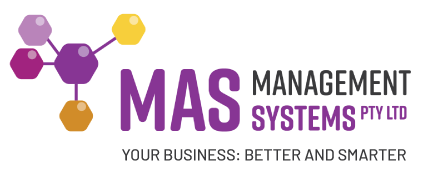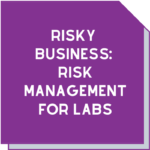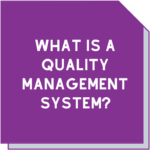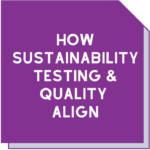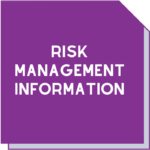The road to high performance in sustainability
We believe in seeking out information and ideas that will support your business to be better and smarter. Different perspectives on quality and business practices may provoke conversations in your workplace. This can lead to new and better ways of doing things. So we’re reaching out to our network of experts and asking for their perspectives on issues that may affect you and your business and sharing them with you.
In the simplest terms, sustainability means meeting our needs without compromising the ability of future generations to meet theirs. But what does this look like in a business sense?
This week’s article by Paul Davies, Principal of Think Sustainability, explores why and how businesses should focus on sustainability.

When I first fell into sustainability (whilst doing a degree where I needed a ‘filler’ subject for a semester and randomly chose something called ‘corporate responsibility’) I became fascinated by pioneer companies in the late eighties and early nineties that adopted a unique business model.
Those companies included Ben & Jerry’s, Interface, and Unilever. There were others too, like The Body Shop and Patagonia. Later on, in what still remains a surprise to many, was Walmart.
It’s hard to say exactly what the trigger was for companies such as these to go down, what was at the time, an untried experimental path. It made little sense on paper in terms of traditional business models predicated on profit, growth and, where possible, avoiding prosecution.
One common factor was that they were emerging out of what was arguably ‘the decade of greed’, the 1980s. Whilst Oliver Stone is not everyone’s favourite movie maker, his cheesy yet iconic take on the 80s (Wall Street) perfectly captures the business mood of that decade.
The film portrayed some of the excesses of business behaviour to the nth degree. However, it simultaneously attracted and repelled viewers about where the corporate world had arrived toward the end of the 20th Century.
Catalyst for change
Business behaviour doesn’t suddenly change on its own. It needs to be kick-started by those that genuinely want to try something new or different.
I deliberately avoid the term ‘visionary’ as it is an annoyingly over-used adjective that elevates people to a pedestal. It suggests they operate on a different plane to everyone else. I prefer the term ‘pioneers’, as these were people who couldn’t always predict the outcomes of the path they were taking, but just intrinsically knew it was worth exploring.
The other thing that characterises many of these people is ‘genuineness’. They are not self-proclaimed ‘gurus’ wandering the business and media landscapes seeking to get attention and dispense catchy advice at Ted Talks, business conferences and corporate ‘team-bonding’ sessions. Those types are largely ephemeral, garnering the spotlight while they can but leaving little lasting value once their one-trick pony expires. True pioneers have endurance, determination and sometimes cheekiness, lead by example, and have a legacy that is often unintentional.
In terms of legacy, it is no surprise then to see companies like Unilever still garnering significant recognition for their sustainability endeavours well into the current century.
Most recently, some 700 experts from the private sector, governments, and NGOs across 70 countries participated in a survey by Globescan and the SustainAbility Institute. For the 10th consecutive year Unilever stood atop the podium, a clear head-and-shoulders winner. Other familiar names were there too, including Patagonia and IKEA, but the gap between ‘first’ and ‘next’ was obvious.
There were also a few new faces on the honours list, such as Microsoft and Orsted. Surprisingly (or sadly, unsurprisingly) the relative lack of stiff competition from other, well-known businesses and brands (in terms of being recognised for their sustainability performance) speaks volumes.
It reminds us that no matter what we hear in the media or read in corporate sustainability reports, there are still relatively few corporates that truly deliver on the ‘sustainable company’ promise.
There are reasons for this and often they have nothing to do with a lack of intent or trying.
What does business sustainability look like?
Firstly, the term ‘sustainable business’ remains an aspirational one. It may even be an oxymoron. Businesses can have aspects of sustainability yet remain largely unsustainable. This is due to their products, their sector, their inherent limitations about what they can change and remain viable.
It can also be about their shareholders’ and investors’ wishes, their leadership, their supply chains, technical and legislative barriers, or even their competitors. For whatever reason, most companies and brands still fall well short of even approximating a sustainable business model.
 At the bottom end of the credibility spectrum are those that pretend to have sustainability nailed.
At the bottom end of the credibility spectrum are those that pretend to have sustainability nailed.
The glossy CSR report, the thinly veiled ‘we care’ advertising, the environmental media-event.
The list of companies that have tried this approach and been hauled through the court of public opinion is unfortunately long and still growing.
The only pleasing thing to see is shareholders being more prepared than before to question business decisions, ethics, and values, even when royal commissions and senate inquiries spectacularly fail to do the job they were tasked with.
The real problem with such ‘greenwashing’ is that it undermines others’ legitimate efforts to become more sustainable. The CEOs and Boards of these miscreant organisations will not likely be treated kindly from a legacy perspective.
Life in the middle
The overcrowded middle ground is occupied by businesses on the ‘sustainability journey’. They want to be more sustainable, but they don’t have the key drivers, systems, and measures in place.
They will almost always have directives, policies, and strategies to embed sustainability, but their enactment falls short. Their efforts struggle due to short-term earnings expectations, lack of incentives to deliver sustainable outcomes and poor internal ownership of (often vague or ill-informed) targets.
This frustrates boards, leadership teams and employees who genuinely want to step up. The missing factor is usually one of alignment – matching intent with focus, resources, leadership, and accountability. There are good, proven, and accessible tools out there to enable this alignment, but they often go unrecognised, mis-applied or only superficially taken advantage of.
And what about the front-runners in the sustainability stakes, the businesses that reach the top step of the podium? What characterises them and lifts them above the pack?
7 attributes of a sustainable business
The following attributes are based on what I’ve seen over two decades of working with and in companies, small businesses and other organisations.
An inclusive culture
Inclusiveness is not only a desirable trait of organisations but is becoming expected behaviour. Stakeholder engagement on its own is not inclusiveness, as many believe. It’s more than asking your internal and external stakeholders what’s on their mind, or what’s annoying them about your organisation. Inclusiveness means involving them in anticipating the future; identifying emerging issues; asking if they are interested in helping to identify solutions or, in fact, to be part of the solution. It means establishing a working relationship not just holding a conversation.
Front-runners tend to ignore ‘reputation’ as a key business driver to be sustainable
Worrying about using sustainability to improve your reputation skews your company’s priorities. What should be getting attention in your company’s sustainability strategy or agenda? Reputation management tends to focus on the ‘here and now’ rather than ten to twenty years down the road. That’s where sustainability can deliver its true worth. Do well in sustainability and the reputational benefits will likely follow.
High performers tend to squeeze more out of their materiality processes than just their annual sustainability report
Materiality is the key link between stakeholder inclusivity and organisational accountability. Applied across the organisation, it can cut through the clutter and uncover opportunities and risks. An added benefit is providing an external perspective on issues and performance.
This is not typically inherent in internal planning and risk management processes. Taken beyond reporting, materiality helps assess how well management decision-making and response processes are working.
Front-runners are good at managing risk in their supply chains
Some otherwise high-performing companies (including the likes of Nike and Apple) have been publicly shamed over their ignorance, complacency, or naiveté around managing risk in their supply chains. There are some underlying causes of this. A narrow interpretation of the boundaries around sustainability, accountability and organisational risk. Limited awareness of which suppliers represent the highest risks in terms of sector, location and product/service. Risk management systems that struggle to acknowledge or deal with sustainability-related risk in supply chains. And sustainability teams that sit in isolation to other managers and departments that are dealing with risk and procurement.
Managing risk in your supply chain is challenging but doable and rewards the investment many times over.
High performers have a holistic approach to risk management
Last century’s risk management approaches aren’t enough to keep companies out of trouble. It’s true they allow businesses to detect, understand, evaluate, review, and respond to financial risks. However, they fail to manage those non-financial risks that are becoming increasingly mainstream. This includes in the media, at shareholder meetings, in legislation and investment decision-making. And they are now a focus of management system standards.
Sustainability-related risks are a significant component of non-financial risks. They include climate change, modern slavery, business reputation, stakeholder accountability, environmental stewardship, responsible procurement, and resource management. Yet many organisations’ risk management systems are simply not able to deal as effectively with sustainability-related risks as they do with other types of risks. They are even less likely to realise, and take advantage of, sustainability-related opportunities for their business.
Transparency and public accountability
Sustainability reporting provides the opportunity to develop and publicly commit to meaningful sustainability targets designed to lift the organisation’s performance around its material issues.
Setting and disclosing clear and unambiguous targets for your reporting acts as a powerful tool to gain traction on key issues within the organisation. Circulate performance targets within the management and board for review, discussion, and integration.
Your stakeholders are looking for clear public commitments to change and expect your organisation to have a transparent agenda in responding to those targets identified in your report. This encourages a stronger focus on delivery against those targets and increases the likelihood that your organisation will actually improve in those areas.
Transparency and accountability underpin credibility, a characteristic of front-runners that is highly valued amongst key stakeholders.
Seeing sustainability as a change management process
More and more companies are seeking to align sustainability with their overall business goals, strategy, mission, or values.
Many business leaders are saying that sustainability is their number one priority. However, while they can point to strategies and policies that seek to crystallise their sustainability objectives and targets, somewhere between the boardroom and the front room the delivery often falls short.
Businesses often find significant challenges in executing sustainability from the top down. The competing pressures of financial returns, turn-around times, a lack of performance incentives and internal accountability on achieving sustainability targets may be too great. Moving towards sustainability requires an understanding of the change processes involved. Otherwise sustainability will remain an add-on or afterthought to business-as-usual practices.
But here’s the good news. Your organisation doesn’t need all seven of these attributes in place to start making a difference in its overall sustainability performance. Even one or two of the them can be a significant catalyst for improvement. And the return on investment may surprise you……
For more information about how your business can improve it’s practices, head to Think Sustainability or contact Paul by email paul@thinksustainability.com.au
Download the article The road to high performance in sustainability
